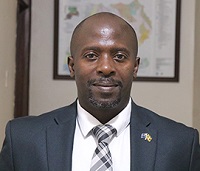
A solution to climate change induced food insecurity and conflicts in the semi-arid mineral rich region
COMMENT | BWESIGYE DON BINYINA | According to a recent report by the East African newspaper, Uganda is on the verge of becoming the first East African country to attain energy surplus and security status. Although the estimated 100MW could still be wiped out within five years, this is nevertheless exciting and a commendable milestone for the country’s sustainable development goals and march towards Vision 2040.
According to the Renewable Energy Policy, 2007, Uganda vision 2040, the country’s total renewable energy power potential is estimated at 12,700MW of which 4,500MW is hydropower, 1,500MW is geothermal, 1,700MW is biomass and 5000MW is solar PV. There is no estimation of wind energy in our policy and national development strategies.
The expected 600MW from Karuma dam once on the national grid, will see our predominantly renewable energy power sources increase from 400 MW in 2000 to 1,925.9MW in 2023. This new surge in power generation will ultimately lead to a surplus of 100MW, surpassing current consumption capacity of 1,875MWs last recorded in 2022.
The domination of renewable energy in Uganda’s energy mix cannot be overstated. The introduction of Karuma dam’s 600 MWs will ultimately increase installed hydro power capacity to an additional market share of 50% from the current 79.7% of installed hydropower, with another share of 15.7% taken up by bagasse and thermal sources while solar energy contributes the least of our energy sources.
In our quest to meet our climate change commitments reflected in the new Climate Change Policy and legal framework and the adoption of the Paris Agreement on Climate Change Adaptation and Mitigation, Uganda will need to harness all its renewable energy resources which include among others, geothermal and wind energy to replace and retire fossil thermal energy sources currently part of our energy mix. Aside from its credentials as an environmentally friendly renewable energy resource, wind energy has the potential to boost economic growth, create jobs for the youth, facilitate the take-off of modernised irrigated agriculture, and address food shortages, famine, droughts and aridity.
Uganda has in recent times witnessed the impact and devastation of climatic change manifestations in extreme rainfall, landslides and deadly flooding, persistent droughts, urban and rural heat waves and enlarged weather variability.
The Karamoja region is at the forefront of climate change in Uganda. Most areas in Karamoja are currently faced with extreme weather conditions such as, increased aridity, droughts, scarcity of water for grazing and agriculture and food shortages. This has led to loss of lives caused by several years of drought and food insecurity in the region. Research shows that there is a strong correlation between increased conflicts and insecurity and climate change drivers such as food security, access to water, droughts and extreme weather conditions.
Fortunately for the Karamoja region, emerging data on wind measurements reveal huge commercial potential for both large and small-scale electricity generation. Preliminary investigations undertaken by Howbeit, an international consultancy firm established huge wind potential along the shores of Lake Victoria and the North-Eastern region of Karamoja. Recent studies and data collected by some private investors exploring investments opportunities in wind energy Uganda, have since confirmed Howbeit’s preliminary investigations. It has since been confirmed that the average speed of wind flows between 3.3 meters per second (m/s) rising to above 6 m/s in the Karamoja region, mountainous areas and around Lake Victoria water basin. Such wind pattern is adequate to support wind technology application in the region.
Wind power development could augment electricity production and access, minimise load pressures on the national electricity grid, reduce and prevent future electricity outages and contribute to the country’s current and future energy security. The confirmed wind energy resource in Karamoja is adequate for both commercial evacuation to the national grid sub-stations within the region to power emerging mining industries, communities, water pumping in remote villages and support to modernised and subsistence irrigated agricultural farms for the sustainability of poor communities in the region. For a community rich in marble, limestone, pozzolana, gold, cobalt, copper and gemstones, wind technology will not only be crucial in reducing tensions and conflicts between mining companies and mineral rich host communities in the region, but could be a game changer in sustaining and supporting smart-mining, reducing the impact of mining on climate change in support of adaptation and mitigation measures such as substitution of fossil fuels in powering the mines with wind generated electricity.
Rupa Community Development Trust (RUCODET) is a community development trust established by the communities of Rupa and Lotisan communities in Moroto district with support from the Africa Centre for Energy and Mineral Policy (ACEMP). The community seeks to protect communal land, represent the mineral rich community in negotiations for surface rights with the mining and energy industry for the attainment of a Social Licence to Operate (SLO), develop the community through education, health care support, create jobs and employment through business incubation, empower and support women development through inclusive community development agreements for sustainable development. RUCODET and ACEMP view wind energy as an antidote to food insecurity, conflict and lack of sustainable development in the region. RUCODET and ACEMP are currently pioneering and sourcing for support from development partners, Foreign Direct Investment (FDI) and Domestic Direct Investment (DDI) to partner in developing this untapped wind potential in their midst for the sustainable development of Karamoja.
This if achieved will go a long way in averting the resurging climate change in the region by addressing the pervasive food security in region, save thousands of lives and ultimately put an end to climate change induced conflicts and insecurity in the Karamoja region.
*****

Bwesigye Don Binyina is Mineral & Energy Policy Analyst and Executive Director, Africa Centre for Energy and Mineral Policy (ACEMP)
 The Independent Uganda: You get the Truth we Pay the Price
The Independent Uganda: You get the Truth we Pay the Price



